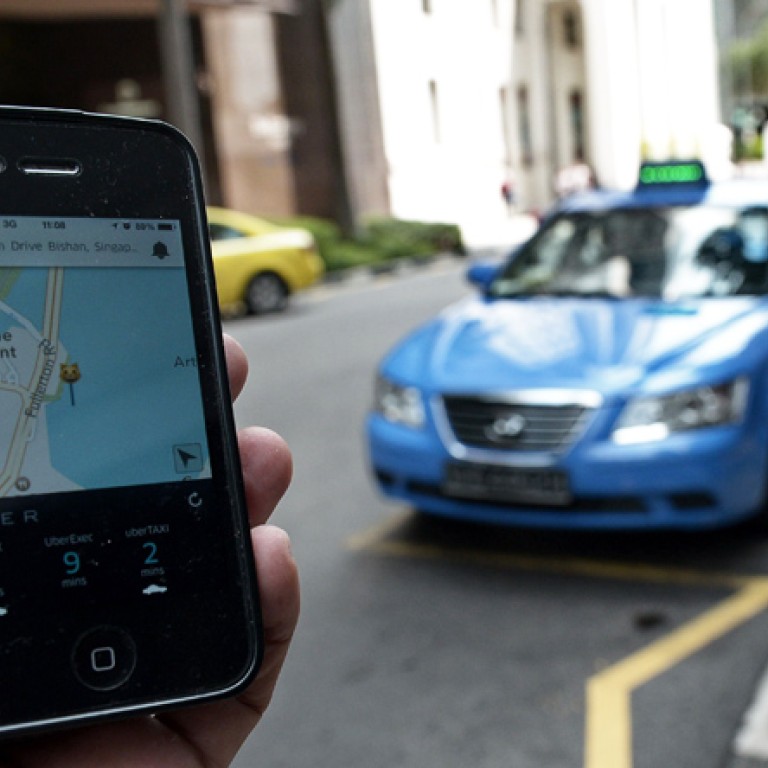
Taxi-hailing app Uber in merger talks with Chinese rival to speed up global expansion
Ride-hailing app Uber is reportedly in talks to merge with its domestic Chinese competitor Yidao Yongche, with a deal in sight within a week.
Ride-hailing app Uber is reportedly in talks to merge with its domestic Chinese competitor Yidao Yongche, with a deal in sight within a week.
Talks between the two had been ongoing for months, but were accelerated due to last month’s union of two other major competitors Didi Dache and Kuaidi Dache, reports in the Chinese media said.
Details of the deal were not given, but news portal Sina reported that search giant Baidu – a stakeholder of Uber and Yidao – was the main facilitator behind the merger and that the deal would be signed within the week.
Yidao chief executive Herman Zhou stoked rumours about the imminent merger after posting on his WeChat account a photo of an aircraft carrying another plane. He captioned it: “We must run towards the boundless universe.”
Both Uber and Yidao have not responded to requests for confirmation or comment.
Uber has failed to gain significant market share on mainland China since it debuted there last year, so a merger with a strong local partner would help it gain a foothold in the market.
Didi Dache and Kuaidi Dache, two of the mainland’s leading taxi-hailing apps, said last month that they would merge to create one of the world’s largest smartphone-based transport services.
The two have attracted more than 100 million users through aggressive expansion in the regular taxi market.
Yongche was worried after the Didi-Kuaidi merger was announced last month, said industry observer Doug Young. Yongche even complained to China’s state regulator that the deal would be anti-competitive.
This new Uber-Yongche marriage looks like a good plan for all three parties involved, Young said, as it would give Yongche more economy of scale and let Uber get two strong local partners in the business.
“That’s quite important in China, where foreign companies are often discriminated against by Beijing and regional governments, which prefer to see partnerships with local firms,” he said.
“The new company also fits nicely with Baidu’s own mapping service, which was already being integrated with Uber’s China business as part of the former’s investment in the latter.”
Baidu joined Yidao Yongche’s series C funding last September and signed a strategic cooperation and investment agreement with Uber in December.
Yidao Yongche started as a car rental website at its inception in 2010, and caught up by shifting to mobile as location-based technology went mainstream.
Now most of its customers come from its smartphone app, and half the ride requests are made in real-time. It is now operating in 76 mainland cities, involving a total of more than 100,000 cars under its service.
